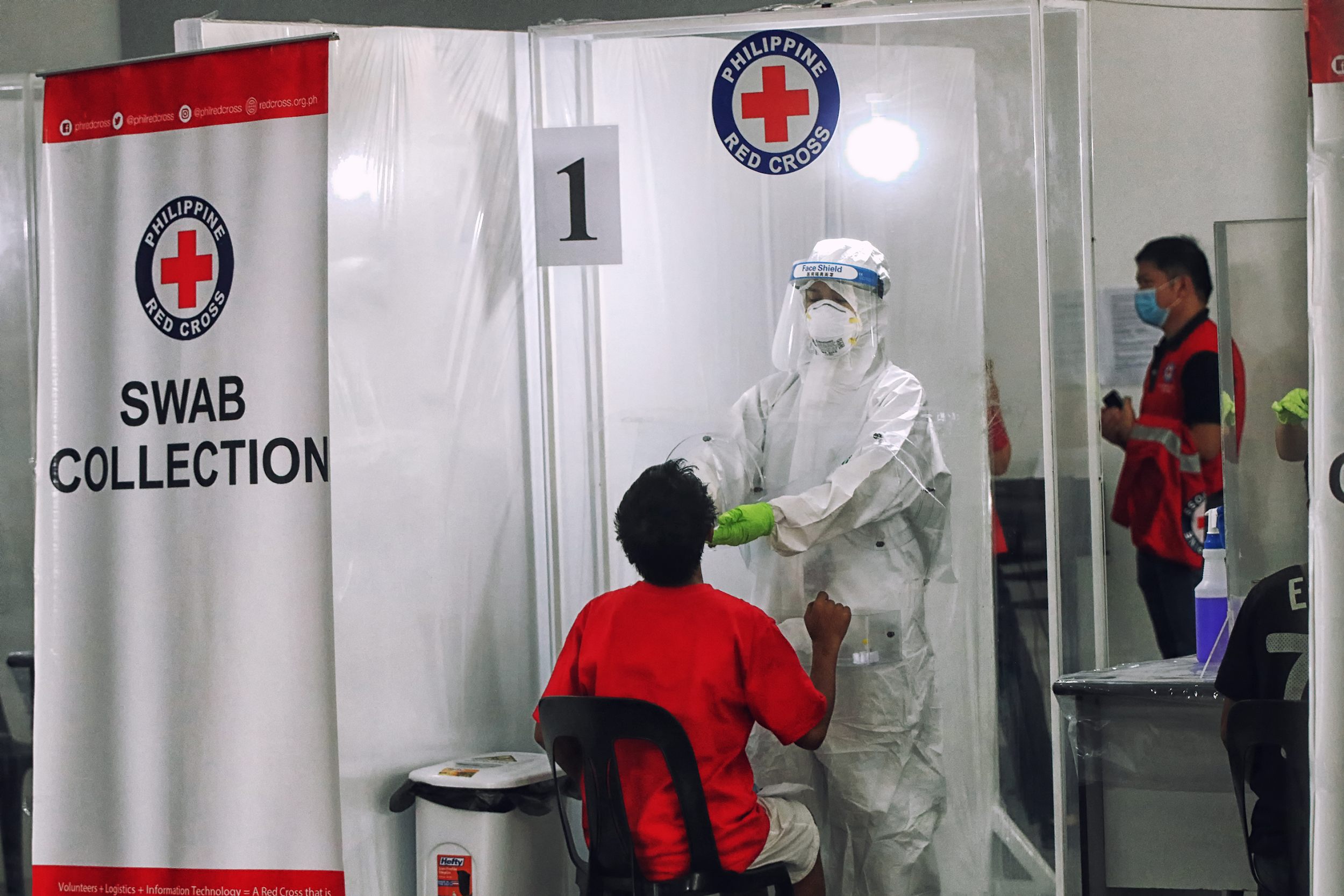December 10, 2020
Beyond the Pandemic, towards Climate Emergencies: Learnings from National Societies on linkages with Social Protection
- Written by: Sayanti Sengupta
- Organisation: Red Cross Red Crescent Climate Centre
- Role: Consultant, Social Protection

The 192 National Societies of the Red Cross Red Crescent Movement have been providing first-line emergency response services during the ongoing Covid-19 pandemic, many of which have included support to national governments in expanding their social protection schemes. The unprecedented health and economic impacts resulting from this pandemic have accelerated linkages between National Societies and governments, with stronger collaborations to adapt and expand coverage of cash and social protection interventions.
The ability of National Societies to be part of response actions during the Covid-19 emergency highlights their role in delivering assistance during future climate emergencies. As climate risks and vulnerabilities rise these contribute to increased loss of livelihoods, impoverishment, food insecurity and inflated migration flows. With trends indicating that climate extremes are intensifying, it is crucial to consider climate risks as threats that will require well-designed, nationally managed, sustainable instruments for dealing with emergencies. Linking humanitarian action with social protection efforts might provide an opportunity to reach those more at risk from climate change and increase the effectiveness of humanitarian response with long-lasting impacts. Delivering cash to vulnerable households in a timely manner can help prevent negative coping strategies and boost the resilience of people affected by crisis.
Some of these links were essentially captured in the session on ‘Strengthening Linkages with Social Protection: RCRC experiences and way forward’ which brought together National Societies using social protection to reduce vulnerabilities arising from climate risks. The session, hosted by the Technical Working Group on Cash and Social Protection in September 2020, as part of the Climate: Red Virtual Summit organized by the International Red Cross Red Crescent Movement, included an engaging panel discussion on how the Malawi Red Cross Society, Kenya Red Cross Society, the Pakistan Red Crescent Society and the Philippines Red Cross have been contributing to building up the responsiveness of national social protection systems for climate preparedness.
Experiences of National Societies in linking Humanitarian efforts with Social Protection for Covid-19 and beyond
During Covid-19, the Philippine Red Cross (PRC) has made use of pre-existing beneficiary lists of the national social protection scheme- the Pantawid Pamilyang Pilipino Program (4Ps), which is primarily used for poverty eradication but also has a shock responsive component to cover beneficiaries in the aftermath of typhoons. The lists, derived from the local governments, were used to target people who are generally excluded from the programme but require assistance due to hardships caused by the pandemic. For this reason, PRC extended coverage to those households which are not traditionally covered by the social protection system but were at risk during the emergency.
The Kenya Red Cross Society (KRCS) assists the national government in scaling up the Hunger Safety Net Program (HSNP), by supporting early action that uses automatic triggers for droughts. In general, KRCS supports in addressing climate vulnerability to droughts by horizontally expanding cash assistance to distribute cash to people who are not covered by the HSNP, and by increasing top-up amounts to people who receive cash assistance from HSNP. During Covid-19, KRCS has helped the government by sharing data and registering new beneficiaries to receive cash transfers.
The Malawi Red Cross Society (MRCS) has facilitated the use of social protection for floods and droughts in Malawi by providing support in identification, registration, and verification of beneficiaries for the National Social Support Programme. Especially for women who are particularly vulnerable to climate shocks, MRCS has implemented a crisis modifier using forecasts for horizontal and vertical expansions of cash transfers, in order to mitigate negative impacts.
The session thus captured the experiences of how some National Societies are working with social protection and primarily cash assistance. The need for National societies to respond to climate related disasters and coordinate with national social protection systems will only increase in the foreseeable future, and important learnings from these experiences were highlighted.
Key insights on using Social Protection for Climate Emergencies by National Societies included
- Success of effective humanitarian response of National Societies (NSs) to climate related shocks will depend on the strength and maturity of pre-existing social protection systems.
- Cash preparedness of NSs, which is often determined by availability of funds, established transfer channels, accessible distribution points and engaged community actors, is important to complement government schemes and extend support rapidly during climate emergencies.
- While social protection can go beyond cash and voucher assistance, cash transfers remain a tried and tested mechanism that is often favoured by governments and can be delivered rapidly and on scale.
- NSs can strengthen existing social protection (SP) systems by supporting the review of SP policy, the harmonisation of beneficiary registration, delivery of benefits, monitoring and evaluation, among others.
- Along with social assistance, NSs could consider complementarities with other parts of social protection (including labour-related interventions, job training, social service and care)

Philippine Red Cross
As one of the panellists in the discussion mentioned, “climate change is exacerbating risks that affect the most vulnerable, and in future it might become the main driver of such risks. Linking social protection and humanitarian action will be crucial to address such risks“.
Through initiatives such as the Technical Working Group on Cash and Social Protection and others, the International Red Cross Red Crescent Movement is increasing its preparedness and capacity to support such linkages around the world, helping to address climate risks and strengthening national SP programs.
